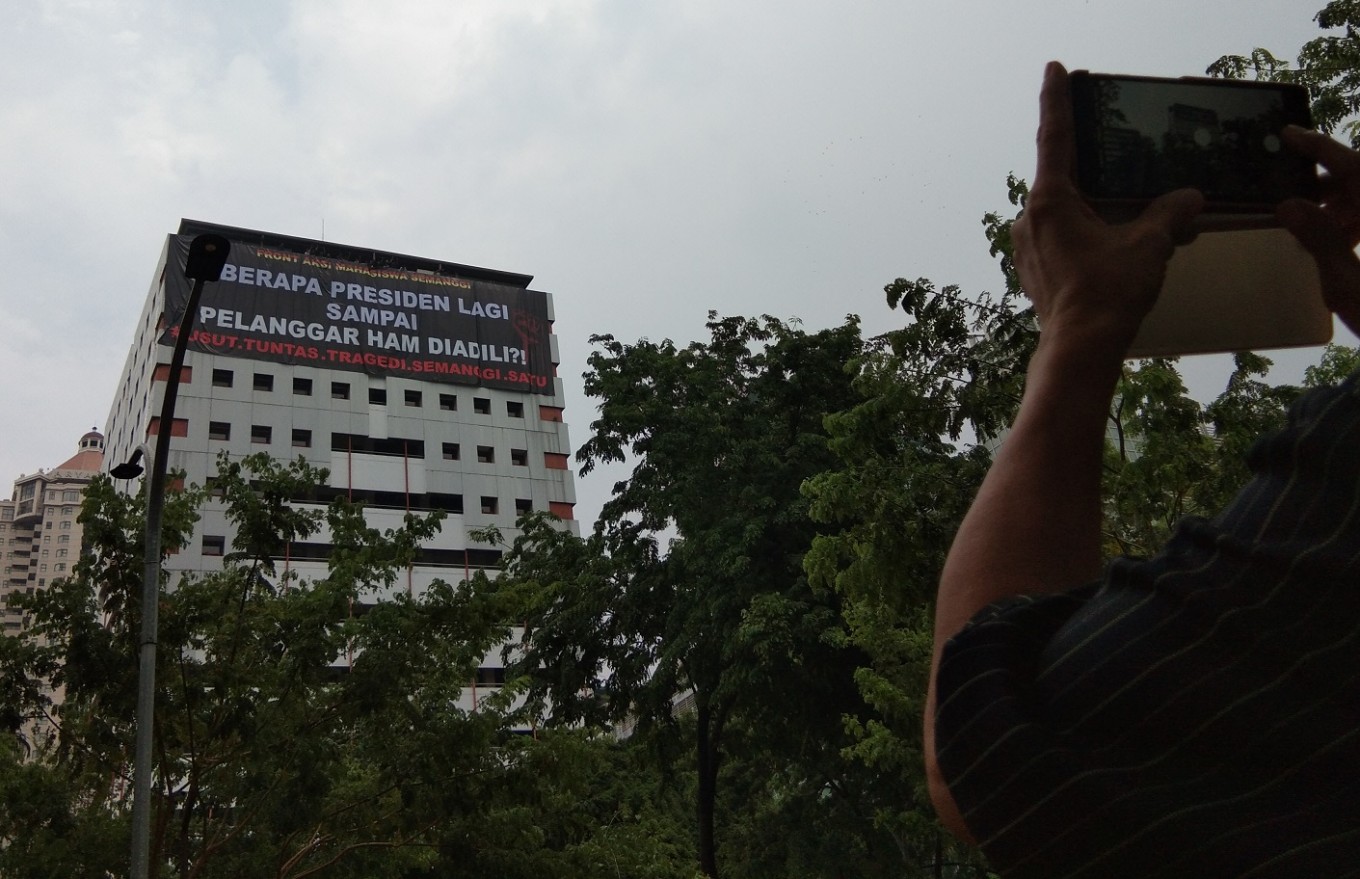
Before the COVID-19 pandemic struck early in March, for 13 successive years, without any break, a number of people rallied outside the State Palace every Thursday to demand justice for their sons, friends and other victims of human rights violations plaguing the country’s history. The protest, called Aksi Kamisan, has since shifted online in compliance with the protocols to prevent COVID-10 transmission.
For so many years, they have tirelessly fought for their cause, despite the fact that their rallying cry has fallen on deaf ears. However little the prospects of the movement to bear fruit, it will keep the nation’s memory of numerous crimes against humanity that the state has been reluctant to settle, if not recognize.
The uncertainty surrounding the investigation into the arsenic poisoning of human rights defender Munir Said Thalib 16 years ago today exemplifies the government’s denial to take responsibility and ensure justice is served. At least two governments have now failed not only Munir’s family but also the nation, because impunity has been preserved for perpetrators of human rights.
Munir died aboard a Garuda flight on Sept. 7, 2004, before he reached the Netherlands for studies. A number of people have stood trial in connection with the murder, but nobody has legally been held responsible for the crime. Garuda pilot Polycarpus Budihari Priyanto was found guilty of committing the poisoning, but later the Supreme Court only convicted him of document forgery.
Read also: Long road to see justice over Munir’s murder
In fact, the Munir case is politically complicated for former president Susilo Bambang Yudhoyono and his successor President Joko “Jokowi” Widodo, as higherups in the State Intelligence Agency (BIN) were named in the case — though the allegations were unproven in court. But with the perpetrators of the murder still around, neither Yudhoyono nor Jokowi has made serious efforts to unveil the truth.
The state’s failure to settle high profile cases like the Munir killing comes as no surprise. As Aksi Kamisan has shown, all past gross human rights violations have not been resolved.
Post-reform Indonesia drew praise for showing commitment to human rights by enacting the Human Right Law in 1999 and Human Rights Court Law in the following year. The ad hoc Human Rights Court has heard the 1999 mayhem in then-East Timor, the 1984 killings in Tanjung Priok in North Jakarta and the 2001 atrocities in Wasior, West Papua, but the masterminds of the incidents have remained at large.
Both the government and the House of Representatives have resisted demands for such a mechanism to solve other serious human rights violations, apparently because many individuals implicated in the cases are connected with the ruling elite. An alternative instrument, like a truth and reconciliation commission, has been considered but there have been no signs of its realization.
The Indonesian government, like other governments, seems to maintain its denial of a long list of crimes against humanity — ironically at a time when it has a seat in the United Nations Human Rights Council for 2020-2022.
When the government does not act what it preaches, a moral force like the activists of Aksi Kamisan is needed, lest we forget our checkered past.
The Link LonkSeptember 07, 2020 at 08:30AM
https://www.thejakartapost.com/academia/2020/09/07/lest-we-forget.html
Lest we forget - The Jakarta Post - Jakarta Post
https://news.google.com/search?q=forget&hl=en-US&gl=US&ceid=US:en

No comments:
Post a Comment